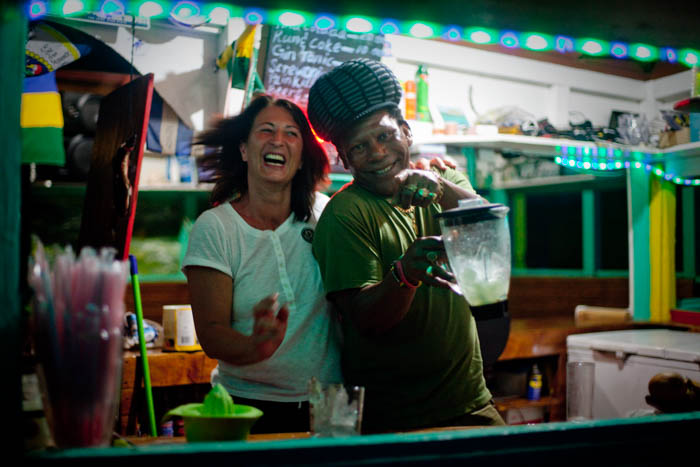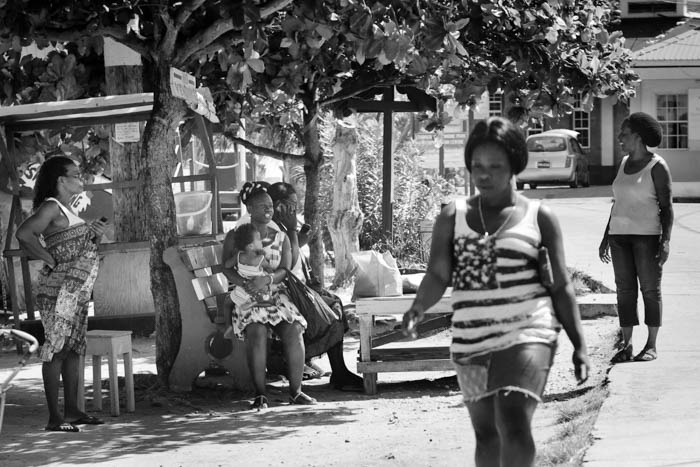English or not English, that is the question when you sail the Caribbean!
When you plan to sail the Caribbean, it may be interesting to prepare yourself a bit for the English you will encounter here. We can asure you that, although your English is rather well, the first days you will have a hard time understanding the people on these beautiful islands.
Text by Mallika Kokke & video by Deep Boel featuring Neal speaking W.I.
Pidgin languages
The varieties of English spoken in the West Indies give us a fascinating insight into the way languages emerge and evolve when people from different cultures come into contact. From the early 1700s, thousands of people were transported as slaves to the Caribbean, particularly from West Africa. As a result a number of pidgin languages developed. A pidgin language is a linguistically simplified means of communication that emerges naturally when speakers of two or more languages need to understand each other. Initially workers on the colonial plantations in the Caribbean would have spoken a variety of ethnic languages, but the language imposed on them by slave owners was English. Among the workers themselves, however, a pidgin language would have been used, based on the sounds, vocabulary and grammatical structures of all the contributing languages.
From Pidgin to Creole
Crucially a pidgin language is not a mother tongue. This means it has no native speakers. But if the pidgin remains the main means of communication within a community for a significant length of time — as, for example, on the plantations of the Caribbean – then it becomes the first language of children within the community. At this point it begins to increase in complexity as it is spoken in a wider range of contexts and adapts to serve the purposes of a fully-fledged language. This process produces what linguists call a creole. A creole is a pidgin that has expanded in structure and vocabulary and has all the characteristics of other languages. This means it demonstrates two important factors:
- Regional variation — hence the difference between, say, Jamaican Patois (often called Patwa locally) and Barbadian Creole (known locally as Bajan)
- Social variation — so we can define one speaker as using a broader variety of patois than another.
Crucially, however, this creole generally competes with a closely related language that has more prestige within the community. Therefore it often has an ambivalent status even among its own speakers. Throughout the Caribbean, for instance, Standard English, albeit a Caribbean version, is the language of education, although Jamaicans, Barbadians and others are rightly proud of their local patois as an important expression of their cultural identity.
Caribbean creole
In its most extreme form, a Caribbean Creole can appear unintelligible to outsiders who sail the Caribbean. As with dialects there are fine shades of differences between speakers, although there are a number of elements that characterise most forms of Caribbean English. The lack of the verb ‘to be’ in statements such as she dreaming, where Standard English requires she’s dreaming, is typical of the type of structure that occurs in a creole. Similarly, pronouns may not be marked for subject/object distinctions and verbs might not always carry a tense marker as in the statement him tell me dat yesterday for he told me that yesterday. The meaning is always clear, despite the apparent simplification – in fact creoles are just as rule-governed as dialects and languages. Finally, there are common elements of Caribbean vocabulary, such as pickney, meaning ‘young child’. This word is particularly intriguing, as it is known to exist in several pidgin and creole languages across the world. It is thought to originate from the Portuguese word pequeno, meaning ‘small’, and perhaps illustrates the role played by Portuguese sailors and merchants in the early trade routes down the West African coast at the time when The Slave Trade was at its height.
Some words you need to know. The following 3 words tell you everything about the way of life in the Caribbean
WINING
is a form of dance, involves gyration or rotation of the hips, can be slow or fast must always be sexy. It mostly involves two persons very close together (male and female). Performed to mainly west indian music like reggae, calypso and soca. The word “wining” is broken English for the word “winding”, as in “a long and winding road”. Winding describes something that is coiling, circling, rotating or snaking.
if you don’t mind…would you take a wine with me?
LIMING
is hanging out with friends together with a nice beer or rum. Can also be standing in the sea till mid waist for hours with tremendously loud music, a lot of screaming and laughter and of course a lot of beer and/or rum. This variant we saw most in Trinidad and Tobago.
I’m going to a lime at the beach tonight!
DINING
is something very important to the Caribbean people. You will see a lot of grills everywhere where they prepare all kind of meat or mais. People like to lime around those places as well with a nice piece of grilled chicken in their hands. In Grenada the local dish is Oil Down. This kind of stew is prepared in a big pot with a lot of meat, different kind of roots and potato. Most of the time this is made outside and a social event for family and friends. So liming and wining can be present.
In the following video you will hear our friend Neal. When you sail the Caribbean with us, Neal facilitates very romantic grills on the beach. In this video he explains these 3 words (WINING, LIMING, DINING) to you in perfect Caribbean creole. Enjoy!
[youtube=http://www.youtube.com/watch?v=wPkdMjDPn_M&rel=0]


